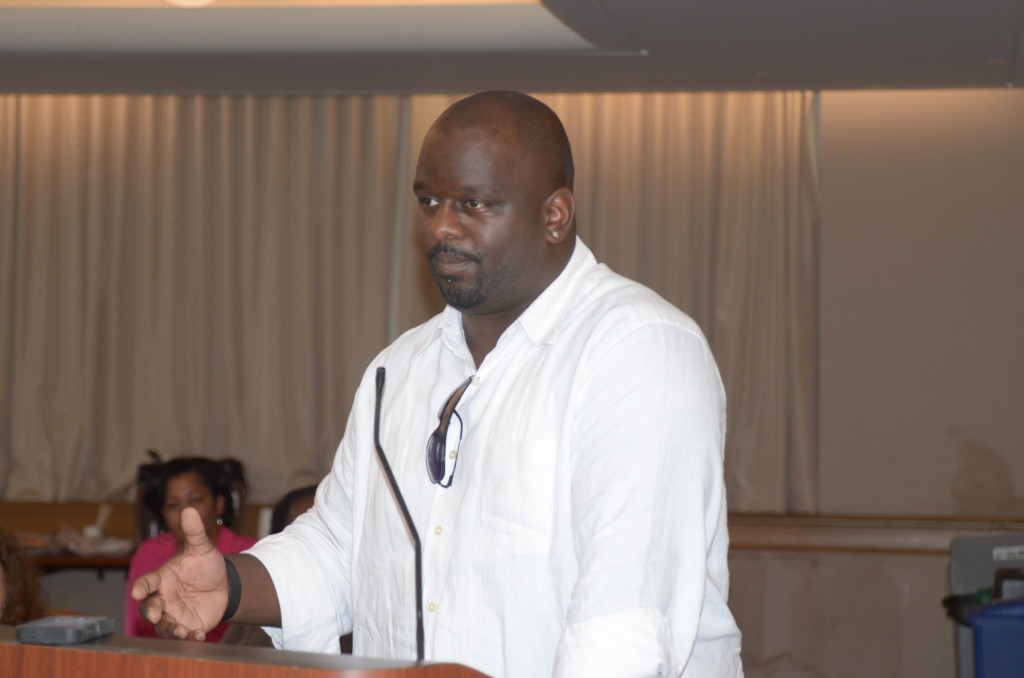Community Calls for City to Improve Management of Federally-Funded Job Programs
Mar 28, 2014
By Ken A. Epstein
More than 150 people attended a public hearing to air long simmering frustrations and disputes over systemic failures of the city’s Workforce Investment Board (WIB) to adequately spend federal money to meet the needs of unemployed youth and adults.
Twenty-five public speakers signed up to speak Tuesday afternoon at the special meeting of the Community and Economic Development (CED) Committee.
The WIB oversees the city’s expenditure of $4.9 million in federal Workforce Investment Act funds, a pot of money that has been decreasing year after year.
A top issue raised by speakers was the 28 percent of the money that the city takes off the top for administrative costs.
Speakers were also concerned that Oakland, unlike other Bay Area cities, does not contribute any money to support WIB programs and administrative costs.

“More money needs to be put on the street for those who need help and for those the (federal) legislation is designed to help,” said Gay Plair Cobb, CEO of the Oakland Private Industry Council, who emphasized her comments, as well as those of others, were meant in the spirit of constructive criticism.
“Desperately needed funds have been taken of the street and (placed) in the city budget,” at a time when Oakland’s jobless rates are increasing and federal funding is declining, she said.
While the city’s turn around time for paying nonprofit agencies that provide job services to the unemployed has improved – now generally at 20 working days – that is still not good enough, said Cobb.
“It does not work for smaller nonprofits to advance to the city money they do not have,” she said, adding that PIC had to wait for several months to receive $800,000 to pay for job services it delivered, forcing the agency to use non-federal funds to cover the federal expenses.
“This creates future audit problems,” she said.
Marlon McWilson, a member of the Alameda County Board of Education, complained that the WIB administration and board often are not responsive to community concerns.
“We as a community are not represented enough at that table,” he said. “Our voices are shot down for the most part.”
Presented at the meeting were a list of 10 improvements in the city’s workforce development system during the current fiscal year, endorsed by 18 local organizations, including PIC, Black Women Organized for Political Action (BWOPA), Black Elected Officials and Faith-based Leaders of the East Bay, Turner Group Construction, Lao Family Community Development Services and People United for a Better Life in Oakland (PUEBLO).
Among changes the organizations want to see implemented are “reduction of the city’s fees” taken from federal funding and increasing funding for “underserved Latino youth provided by organizations with knowledge of and sensitivity to, the experiences of Oakland’s Latino community.”
They also want the city to streamline its administrative processes, including contracting and payment of invoices, as well as to adopt an open and transparent budget process.
After listening to the speakers, Council President Pat Kernighan said she believes it is time for the city to step up and contribute to job programs. “We do need to put some skin in the game,” she said.
City Administrator Fred Blackwell said he did not see a problem with adopting the 10 proposed reforms.